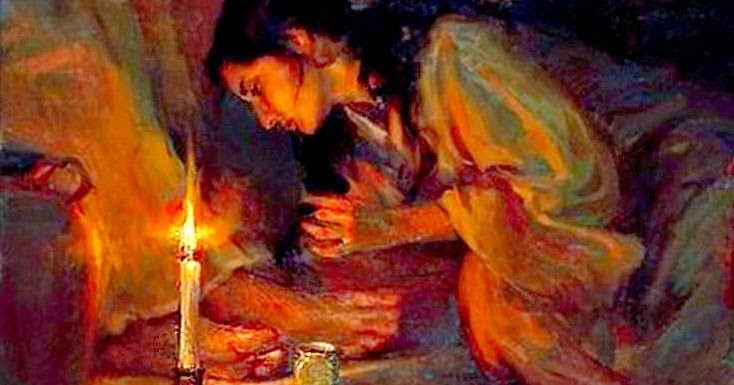Simon the Pharisee committed a grave error in hospitality, and a serious error in judgment. In those days, when a guest came to your home, you made sure to provide water for him or her to wash their feet, because the journey on foot was often long and hot and dirty, and it was pretty much always made on foot. But Simon had done no such thing for Jesus.
Simon’s intentions were not hospitable; rather he intended to confront Jesus on some point of the Law so as to validate his opinion that Jesus was a charlatan. That was the purpose of his dinner invitation. Then, in comes the “sinful woman,” who breaks an alabaster jar full of extremely expensive ointment and anoints the feet of Jesus while she is in tears for love of Jesus and sorrow for her sin. But Simon simply judged the woman to be a sinner, someone to be shunned and ignored, and reckoned Jesus guilty of sin by association. Jesus isn’t having any of that, because Jesus is about forgiveness. He didn’t care about the woman’s past; he already knew it well, but was more concerned that, presently, she had need of mercy. Her act of love and hospitality, her posture of humility, her sorrow for her sin, all of these made it possible for Jesus to heal her.
But the one who doesn’t think he is in need of healing, symbolized by Simon the Pharisee, can never be healed. And so that’s our examination of conscience today. Are we aware of our need for healing, or have we been thinking we are without sin, without brokenness, without openness to God’s mercy? If so, our moments of reflection today need to guide us to honest and open acceptance of God’s mercy, and a pouring out of the best that we have in thanksgiving. Like the repentant woman, we need to humble ourselves, and pour out sorrow for our sins, and love for Jesus who wants nothing more than to heal us.
We are offered so much mercy and forgiveness for our many sins. Let us love much so that we might receive the great mercy our Lord wants to give us.
